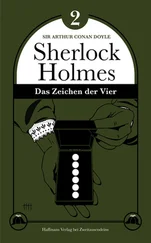Of course, we spiritualists are ourselves vulnerable upon the subject of the lives of some of our mediums, but we carefully dissociate those lives from the powers which use the physical frame of the medium for their own purposes, just as the religious and inspired poetry of a Verlaine may be held separate from his dissipated life. Whilst upon this subject I may say that whilst in Australia I had some interesting letters from a solicitor named Rymer. All students of spiritualism will remember that when Daniel Home first came to England in the early fifties he received great kindness from the Rymer family, who then lived at Ealing. Old Rymer treated him entirely as one of the family. This Bendigo Rymer was the grandson of Home's benefactor, and he had no love for the great medium because he considered that he had acted with ingratitude towards his people. The actual letters of his father, which he permitted me to read, bore out this statement, and I put it on record because I have said much in praise of Home, and the balance should be held true. These letters, dating from about '57, show that one of the sons of old Rymer was sent to travel upon the Continent to study art, and that Home was his companion. They were as close as brothers, but when they reached Florence, and Home became a personage in society there, he drifted away from Rymer, whose letters are those of a splendid young man. Home's health was already indifferent, and while he was laid up in his hotel he seems to have been fairly kidnapped by a strong-minded society lady of title, an Englishwoman living apart from her husband. For weeks he lived at her villa, though the state of his health would suggest that it was rather as patient than lover. What was more culpable was that he answered the letters of his comrade very rudely and showed no sense of gratitude for all that the family had done for him. I have read the actual letters and confess that I was chilled and disappointed. Home was an artist as well as a medium, the most unstable combination possible, full of emotions, flying quickly to extremes, capable of heroisms and self-denials, but also of vanities and ill-humour. On this occasion the latter side of his character was too apparent. To counteract the effect produced upon one's mind one should read in Home's Life the letter of the Bavarian captain whom he rescued upon the field of battle, or of the many unfortunates whom he aided with unobtrusive charity. It cannot, however, be too often repeated—since it is never grasped by our critics—that the actual character of a man is as much separate from his mediumistic powers, as it would be from his musical powers. Both are inborn gifts beyond the control of their possessor. The medium is the telegraph instrument and the telegraph boy united in one, but the real power is that which transmits the message, which he only receives and delivers. The remark applies to the Fox sisters as much as it does to Home.
Talking about Home, it is astonishing how the adverse judgment of the Vice-Chancellor Gifford, a materialist, absolutely ignorant of psychic matters, has influenced the minds of men. The very materialists who quote it, would not attach the slightest importance to the opinion of an orthodox judge upon the views of Hume, Payne, or any free-thinker. It is like quoting a Roman tribune against a Christian. The real facts of the case are perfectly clear to anyone who reads the documents with care. The best proof of how blameless Home was in the matter is that of all the men of honour with whom he was on intimate terms—men like Robert Chambers, Carter Hall, Lord Seaton, Lord Adare and others—not one relaxed in their friendship after the trial. This was in 1866, but in 1868 we find these young noblemen on Christian-name terms with the man who would have been outside the pale of society had the accusations of his enemies been true.
Whilst we were in Sydney, a peculiar ship, now called the "Marella," was brought into the harbour as part of the German ship surrender. It is commonly reported that this vessel, of very grandiose construction, was built to conduct the Kaiser upon a triumphal progress round the world after he had won his war. It is, however, only of 8,000 tons, and, personally, I cannot believe that this would have had room for his swollen head, had he indeed been the victor. All the fittings, even to the carpet holders, are of German silver. The saloon is of pure marble, eighty by fifty, with beautiful hand-painted landscapes. The smoke-room is the reproduction of one in Potsdam Palace. There is a great swimming bath which can be warmed. Altogether a very notable ship, and an index, not only of the danger escaped, but of the danger to come, in the form of the super-excellence of German design and manufacture.
Our post-bag is very full, and it takes Major Wood and myself all our time to keep up with the letters. Many of them are so wonderful that I wish I had preserved them all, but it would have meant adding another trunk to our baggage. There are a few samples which have been rescued. Many people seemed to think that I was myself a wandering medium, and I got this sort of missive:
"Dear Sir,— I am very anxious to ask you a question, trusting you will answer me. What I wish to know I have been corresponding with a gentleman for nearly three years. From this letter can you tell me if I will marry him. I want you to answer this as I am keeping it strictly private and would dearly love you to answer this message if possible, and if I will do quite right if I marry him. Trusting to hear from you soon. Yours faithfully——.
P.S.—I thoroughly believe in Spirit-ualism. "
Here is another.
"Honored Sir,— Just a few lines in limited time to ask you if you tell the future. If so, what is your charges? Please excuse no stamped and ad. envelope—out of stamps and in haste to catch mail. Please excuse. "
On the other hand, I had many which were splendidly instructive and helpful. I was particularly struck by one series of spirit messages which were received in automatic writing by a man living in the Bush in North Queensland and thrown upon his own resources. They were descriptive of life in the beyond, and were in parts extremely corroborative of the Vale Owen messages, though they had been taken long prior to that date. Some of the points of resemblance were so marked and so unusual that they seem clearly to come from a common inspiration. As an example, this script spoke of the creative power of thought in the beyond, but added the detail that when the object to be created was large and important a band of thinkers was required, just as a band of workers would be here. This exactly corresponds to the teaching of Vale Owen's guide.
Table of Contents
Dangerous fog.—The six photographers.—Comic advertisements.—Beauties of Auckland.—A Christian clergyman.—Shadows in our American relations.—The Gallipoli Stone.—Stevenson and the Germans.—Position of De Rougemont.—Mr. Clement Wragge.—Atlantean theories.—A strange psychic.—Wellington the windy.—A literary Oasis.—A Maori Séance.—Presentation.
My voyage to New Zealand in the Maheno was pleasant and uneventful, giving me four days in which to arrange my papers and look over the many manuscripts which mediums, or, more often, would-be mediums, had discharged at me as I passed. Dr. Bean, my Theosophic friend, who had been somewhat perturbed by my view that his people were really the officers of our movement who had deserted their army, formed an officers' corps, and so taken the money and brains and leadership away from the struggling masses, was waiting on the Sydney Quay, and gave me twelve books upon his subject to mend my wicked ways, so that I was equipped for a voyage round the world. I needed something, since I had left my wife and family behind me in Manly, feeling that the rapid journey through New Zealand would be too severe for them. In Mr. Carlyle Smythe, however, I had an admirable "cobber," to use the pal phrase of the Australian soldier.
Читать дальше












